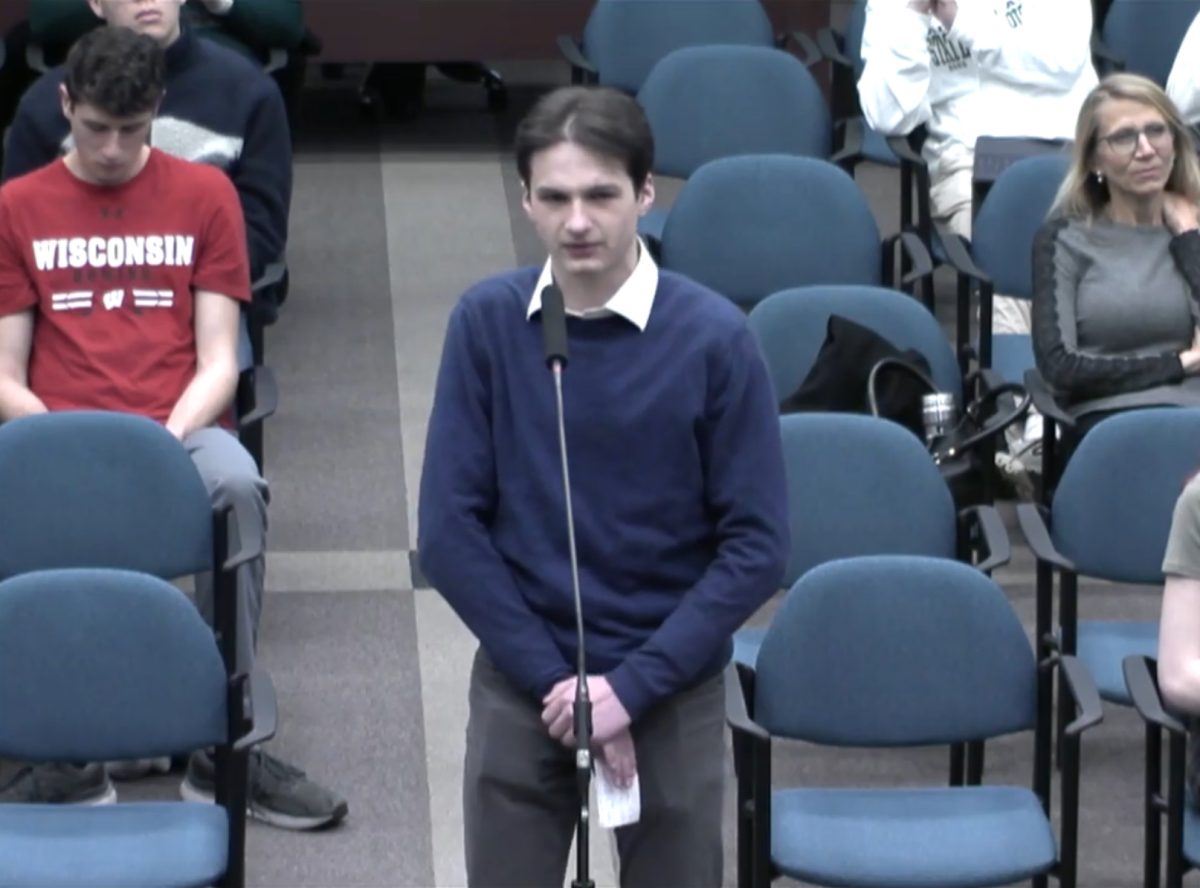Last December, a group of five seniors kicked off a new project that seeks to increase student representation on the New Trier Board of Education. These so-called Student Voice presentations are set to be a permanent fixture of future board meetings and will feature diverse perspectives from students of all grade levels.
In the past, New Trier has allotted time for students and community members to voice their opinions at board meetings. However, the student body lacked a consistent representative body. The new plan will allow different New Trier students to share their experiences and feedback directly with the administration.
“The idea is for [the board] to really be able to hear from students firsthand about their educational experience here,” Principal Denise Dubravec said. “I wanted them to feel comfortable critiquing [and] giving the board some comments.”
The December board meeting featured presentations from seniors Asher Alcantara, Duke Baur, Ignacio Hampton, Grace Hester, and Zoe Kozina. Dubravec said the students were chosen because they each represented unique facets of student life.
“We’ve been looking for a diverse group of students that can really provide the board with what it looks like to be the day in the life of a student here,” she said.
For Dubravec, the purpose was not only to learn how to better support students academically, but also to “ensure their ability to connect and belong to the school.”
Many of the December presenters chose to reflect on the balance between school and extracurricular life as well as the immense pressures placed on New Trier students to achieve highly across the board.
Duke Baur, a member of the jazz ensemble, said, “My main goal was to try to just sum up my own experience outside of all the academics, specifically trying to give the perspective of what a musician at New Trier goes through every day.”
Baur, who was involved year round in numerous sports and jazz music as an underclassman, highlighted his challenge in deciding which of these extracurriculars to continue and which to leave behind.
“You have so many eggs and you can only put them in so many different baskets,” he said. “I wanted to focus on music, and I realized I had to focus on the thing that was going to matter for me more in the long term.”
Ignacio Hampton was also heavily involved in athletics when he started high school, but found the intensity and competitiveness of the soccer team overwhelming.
“[The school] is starting to get better at developing more intramural activities,” Hampton said. “But I think we should have more spaces where people can explore interests without having to be 100% committed.”
Zoe Kozina reflected on how her diagnosis of a learning disability affected her ability to function independently as a student at New Trier.
“I think giving the students the time to realize what they’re struggling with and to realize that maybe they could do some of the things they otherwise thought they could not do would be really beneficial to them,” she said in her presentation.
Many of the presenters emphasized the importance of embracing change throughout their journeys at New Trier. They encouraged students to follow their own paths when it comes to educational and extracurricular pursuits.
When asked what advice he would give to a freshman entering the academic and social scene at New Trier, Baur said, “Your own personal development, whether it be academically, socially, musically, [or] extracurricularly, it’s not a competition.”
Hampton agreed, referencing the ways in which his own identity changed throughout high school.
“Maybe what you liked in middle school, or who you associated yourself with, is going to change. It’s a part of high school. High school is a period of self discovery. And that’s what it should be.”
According to Dubravec, the board appreciated the constructive feedback given by the students. They will continue to evaluate the input from the junior, sophomore, and freshman presentations spread out over the next three months. Baur believes the direct conversation between students and administration is critical.
“I think it’s important for [the board] to see our faces in person and see us speak to them as equals,” he said. “We’re giving them our full experience, our triumphs, our failures. I think it’s important for them to see we are the embodiment of the school.”






































